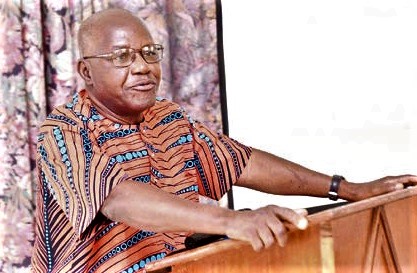
Ghana ranked highest in budget transparency - Survey
The country has been ranked highest in budget transparency in the latest open budget survey (OBS) report, the best performance by Ghana since it joined the OBS in 2010.
It scored 56 per cent, two points better than the 2019 ranking of the biennial OBS, the world’s “only comparative, independent and regular assessment” of the components of budget accountability at the national level.
Despite the steady progress in the scores, Ghana still fell within nations with limited information on budget processes, falling short of the 61 per cent required to make the appreciable mark.
The OBS, which was launched by SEND-Ghana, a civil society organisation, in Accra yesterday, however, revealed that in terms of public participation in budgetary processes, Ghana only managed 20 per cent, making it the weakest link.
The survey further showed that Parliament and the Auditor-General’s Department had weak oversight on the budgetary process, after scoring 39 per cent.
About OBS
The survey, which is conducted in 120 countries, has local civil society groups or independent researchers as its respondents, and it encompasses their responses to objective and fact-based questions.
Each country’s results are reviewed by an anonymous expert, while governments are invited to provide their comments.
The OBS 2021, the eighth in the series, assessed activities undertaken and documents that should have been published by December 31, 2020.
The assessment covers all four stages of the budget process - formulation, approval, execution and oversight.
The transparency component of the OBS measures public access to information on how the central government raises and spends public resources.
Details of findings
The Budget Credibility Programme Officer at IBP, Godson Aloryito, who provided details of the survey, said African countries were not doing well to ensure budget accountability and transparency.
According to the OBS, in budget transparency, Georgia topped the global ranking with 87 per cent; the Republic of South Africa came second with 86 per cent, while Sweden and New Zealand were third and fourth, with 85 per cent each, with Mexico completing the top five countries on the ranking with 82 per cent.
And in Africa, South Africa and Benin were the only countries that made it to the list of countries with substantial information, after scoring 86 and 65 per cent, respectively.
On citizens’ participation, the OBS showed that South Korea, the United Kingdom, New Zealand, Georgia and Ukraine were the top five global performers with 59, 54, 48, 44 and 39 per cent, respectively.
At the regional level, Kenya came first with 31 per cent, followed by Benin, 28 per cent; Nigeria, 24 per cent; Zambia, 24 per cent, and Ghana, 20 per cent.
For budget oversight, Germany was the top performer with 91 per cent, while Norway and South Korea followed with 87 per cent each.
France and Sweden completed the top five global performers in citizens’ participation with 85 per cent each.
South Africa, Rwanda and Nigeria scored 81, 65 and 61 per cent, respectively, making them the only three African countries with adequate citizens’ participation in the budget process.
Benin and Uganda followed with 59 per cent each, with Ghana scoring a low 39 per cent.
Aim of OBS
The Chief Executive Officer (CEO) of SEND-Ghana, Siapha Kamara, said the overall goal of the survey was to increase transparency and accountability in the budget cycle to empower citizens with information to contribute to nation-building.
Among the key pointers for the assessment were online availability, timeliness and comprehensiveness of eight key budget documents, using 109 equally weighted indicators and scoring each country on a scale of zero to 100.
A transparency score of 61 per cent or above indicates a country was likely publishing enough material to support informed public debate on the budget, among other criteria.
